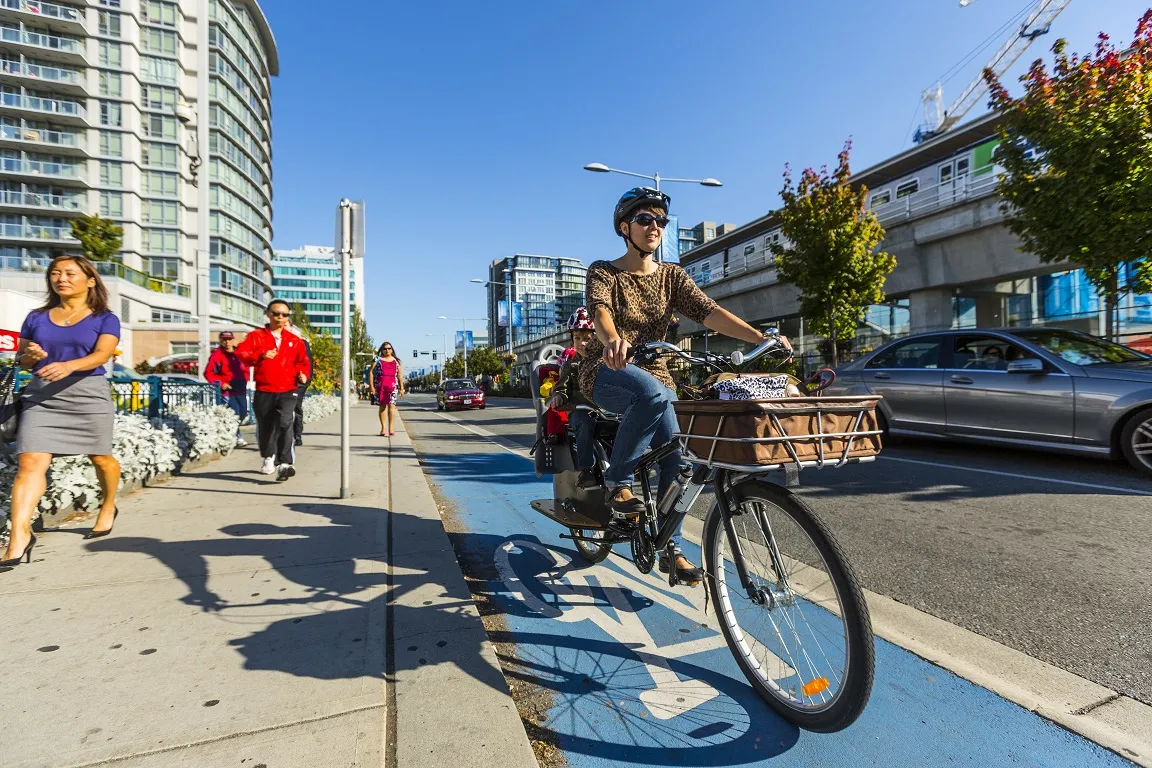UK Prime Minister David Cameron has announced a US$119 million injection of cash for the country, along with plans to make roads safer for those on two wheels. US$119 million will be divided between Manchester, Leeds, Birmingham, Newcastle, Bristol, Cambridge, Oxford and Norwich, while the New Forest, Peak District, South Downs and Dartmoor will each share a slice of US$26 million funding for national parks. With local contributions, the total new funding for cycling is US£229 million between now and 2015.
August 12, 2013
Read time: 3 mins
UK Prime Minister David Cameron has announced a US$119 million injection of cash for the country, along with plans to make roads safer for those on two wheels.
US$119 million will be divided between Manchester, Leeds, Birmingham, Newcastle, Bristol, Cambridge, Oxford and Norwich, while the New Forest, Peak District, South Downs and Dartmoor will each share a slice of US$26 million funding for national parks. With local contributions, the total new funding for cycling is US£229 million between now and 2015.
The announcement includes a commitment from the government to cut red tape that can stifle cycle-friendly road design and to encourage changes to the way roads are built or altered. Councils will be expected to up their game to deliver infrastructure that takes cycling into account from the design stage.
Announcing the funding, Cameron said: “Following our success in the Olympics, the Paralympics and the Tour de France, British cycling is riding high - now we want to see cycling soar. This government wants to make it easier and safer for people who already cycle as well as encouraging far more people to take it up and business, local government, developers, road users and the transport sector all have a role to play in helping to achieve this.”
New trunk road schemes that have a significant impact on cyclists, such as junction improvements or road-widening, will be ‘cycle-proofed’ so they can be navigated confidently by the average cyclist.
Significant junction upgrades and other improvements will help cyclists at fourteen locations on the trunk road network where major roads can prove an obstacle for journeys by bike. US$7.7 million will be invested in upgrades this year and a further US$23 million will be invested in 2015 to 2016, with plans in place for many more similar schemes.
Other plans include mini-signals at cyclists’ eye at junctions along with filter signals for cyclists at traffic lights, as well as trials of different roundabout designs to reduce the speed of vehicles and options for larger advanced stop lines, to accommodate the growth in cycling and make it safer for cyclists at junctions. In addition, work is under way to make it even easier for councils to install mandatory cycle lanes and contraflow cycle lanes.
The1837 Department for Transport is also arranging a conference in the autumn aiming to encourage local authorities to deliver better cycle infrastructure.
US$119 million will be divided between Manchester, Leeds, Birmingham, Newcastle, Bristol, Cambridge, Oxford and Norwich, while the New Forest, Peak District, South Downs and Dartmoor will each share a slice of US$26 million funding for national parks. With local contributions, the total new funding for cycling is US£229 million between now and 2015.
The announcement includes a commitment from the government to cut red tape that can stifle cycle-friendly road design and to encourage changes to the way roads are built or altered. Councils will be expected to up their game to deliver infrastructure that takes cycling into account from the design stage.
Announcing the funding, Cameron said: “Following our success in the Olympics, the Paralympics and the Tour de France, British cycling is riding high - now we want to see cycling soar. This government wants to make it easier and safer for people who already cycle as well as encouraging far more people to take it up and business, local government, developers, road users and the transport sector all have a role to play in helping to achieve this.”
New trunk road schemes that have a significant impact on cyclists, such as junction improvements or road-widening, will be ‘cycle-proofed’ so they can be navigated confidently by the average cyclist.
Significant junction upgrades and other improvements will help cyclists at fourteen locations on the trunk road network where major roads can prove an obstacle for journeys by bike. US$7.7 million will be invested in upgrades this year and a further US$23 million will be invested in 2015 to 2016, with plans in place for many more similar schemes.
Other plans include mini-signals at cyclists’ eye at junctions along with filter signals for cyclists at traffic lights, as well as trials of different roundabout designs to reduce the speed of vehicles and options for larger advanced stop lines, to accommodate the growth in cycling and make it safer for cyclists at junctions. In addition, work is under way to make it even easier for councils to install mandatory cycle lanes and contraflow cycle lanes.
The








